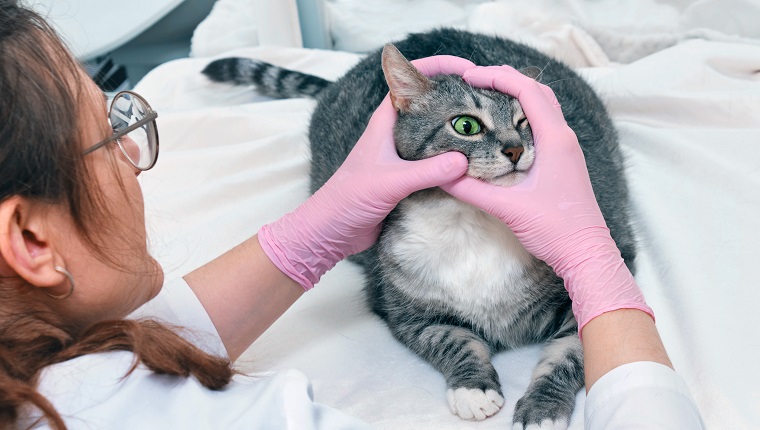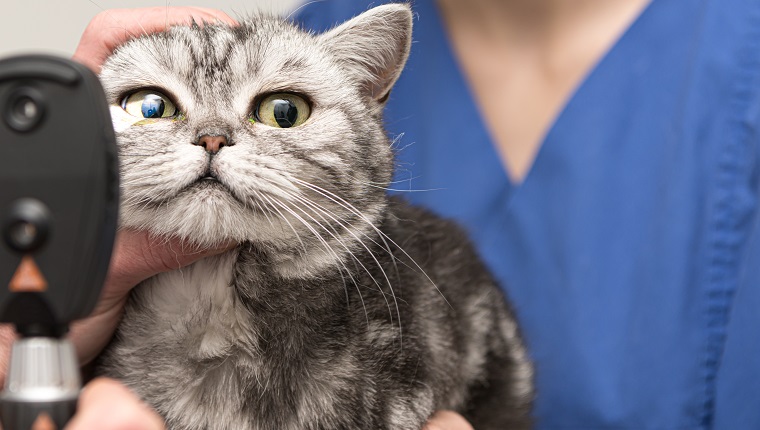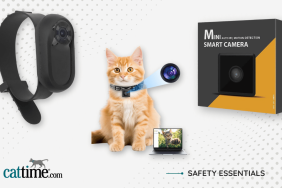Blind quiet eye in cats is a medical condition that causes a cat to lose vision in one or both of their eyes; although, there aren’t any visible signs of the eyes being inflamed or upset.
It usually results from a number of underlying conditions, with abnormal retinal issues being a common factor.
If you see signs that your kitty might be suffering from eye or vision issues, then you must consult your veterinarian for a proper diagnosis and course of treatment. Here’s what you should know about the symptoms, causes, and treatments of blind quiet eye in cats.
Symptoms Of Blind Quiet Eye In Cats
Blind quiet eye in cats involves symptoms that wind up affecting a feline’s vision. Some of the most common symptoms include:
- Moving around in a clumsy way
- Not seeing as well in the dark
- Responding to visual cues in a lethargic fashion
- Tripping over objects
Causes Of Blind Quiet Eye In Cats

There are a wide range of causes of blind quiet eye in cats. Some of the most common causes include:
- Inflammation of the optic nerve
- Sudden acquired retinal degeneration syndrome (SARDS)
- Retinal issues (including shrinking retinas, taurine deficiency, and retinal detachment)
- Trauma to the optic nerve
- Lead poisoning
Veterinary Treatments
If you suspect that your cat is developing blind quiet eye, your veterinarian will want to carry out a full physical examination. This will include urine and blood tests, plus a detailed ophthalmic examination that will focus on the condition of the eyes.
In some cases, vets can use a procedure known as electroretinography to measure the level of electrical responses in the retina.
For treatment, the course of action will depend on the exact underlying condition. If the cat has cataracts, then the vet may suggest a surgical procedure to try and correct the condition. If the cat suffers from a lack of taurine, then a vet may add taurine supplements to their diet.
The vet may prescribe a course of antibiotics if the cat has any infection that needs treatment. As ever, if your vet prescribes medication for your kitty, it is important that you stick to the correct frequency and dosage instructions and complete the full course of medicine.
While your cat recovers at home, it is important to adapt your living situation so that your pet can move around without bumping into objects. In some cases, vets also advise limiting exercise when a cat is recovering.
Vets may additionally recommend dietary changes, especially if a less active cat has a risk of developing feline obesity.
Has your cat developed blind quiet eye? When did you notice that your cat was losing their vision? Tell us all about it in the comments below.









